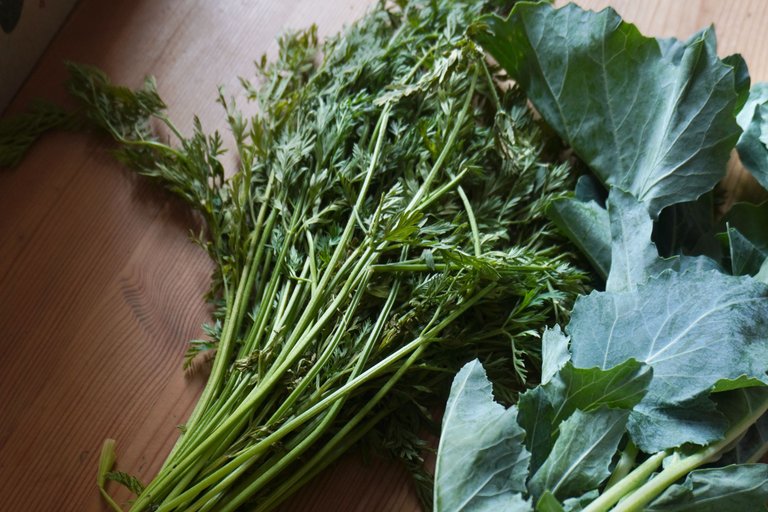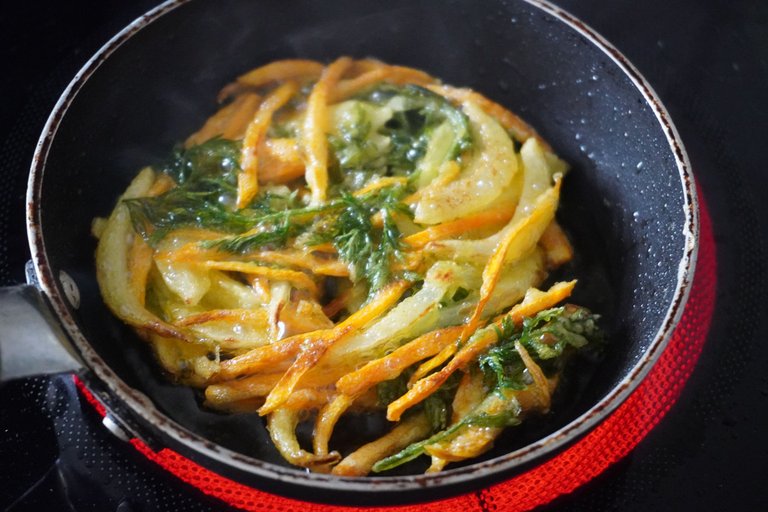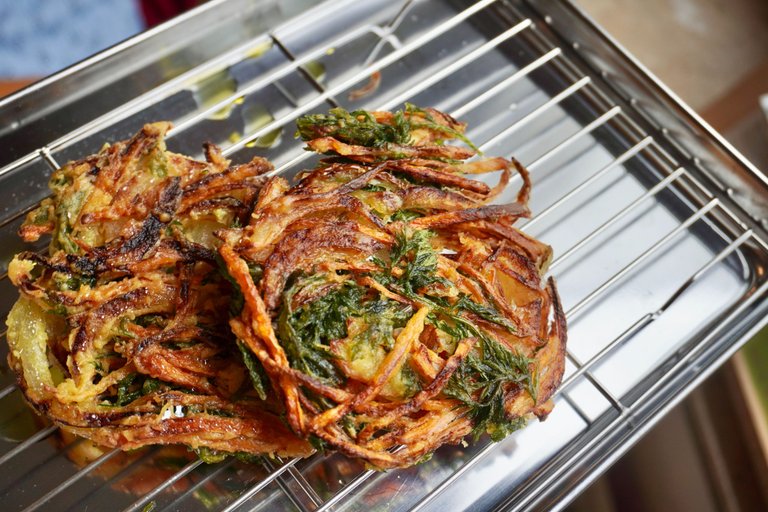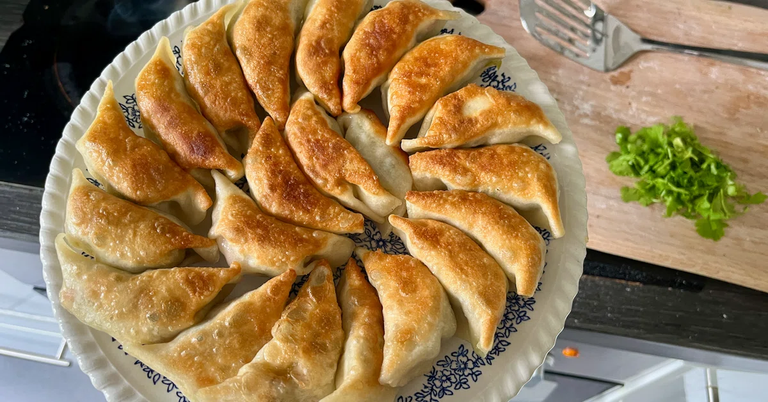Delicious Ways to Enjoy Carrot Tops and Other Root Vegetable Greens / にんじんや根菜の葉っぱのおいしい食べ方

At markets in Germany, when you buy carrots, kohlrabi, or turnips with the leaves still attached, the vendor often asks if you'd like the leaves removed. I always respond quickly, “No, please leave them on!”—because I love eating the leaves, too.
I'm especially fond of the gentle flavor of spring carrot leaves. They’re particularly delicious when made into Kakiage, a kind of mixed vegetable tempura. I made some yesterday for the first time in a while. If you're making a small amount, you can simply use a little oil in a small frying pan and shallow-fry them.


Ah ... it was so tasty. My daughter and I enjoyed it for dinner with some delicious Japanese rice.

The carrot greens were so tasty that I started looking for other ways to use them. I found a recipe for making them into Furikake (a Japanese-style topping on rice), and I’m planning to try it soon.
Kohlrabi is a relative of cabbage, and beets are related to spinach, so you can use them just as you would use cabbage or spinach. Turnip greens are great cooked together with the roots—perfect for making a whole-vegetable soup!
And when you wonder what to do, I recommend dumplings. Gyoza are incredibly forgiving and happy to wrap up whatever you have on hand, including finely chopped root vegetable greens. I once wrote an article (in Japanese) about the incredible versatility of gyoza. They might seem like a lot of work, but if you're making just five or so for yourself, it’s easy to whip up some dough with flour and water, fill them with what you have, and pan-fry them in no time.
The Remarkable Embrace of Gyoza – Improvised Vegetarian Dumplings from Leftovers (in Japanese)

Do you eat carrot leaves or other vegetable greens? If you haven’t tried them yet, I really encourage you to give it a try!
Happy cooking ☺️

ドイツのマーケットでは、葉っぱのついたにんじんやコールラビ、かぶなどを買うと、葉っぱを落とすか聞かれます。私はあわてて「いるいる、つけておいて!」といいます。というのも葉っぱも大好きで食べるからです。
特に、春のにんじんのなんとも優しい味わいが好きで、特にかき揚げにするとおいしいのなんの・・・。昨日久しぶりに作りました。少量であれば小さなフライパンに油を少し強いて揚げ焼きのようにしても。


ああおいしい。子供と二人の夕食でうまうま日本のご飯と一緒に食べました。

にんじんの葉があまりにおいしくて、他にも使い道がないか調べていると、ふりかけにするレシピをみつけて近々試してみようと思っています。
コールラビはキャベツの親戚、ビーツはほうれん草の親戚なので、それぞれキャベツやほうれん草と同じように使えます。かぶの葉は根茎の部分と一緒に使って、丸ごとスープにするといいですよ!
あとは、困ったら餃子。なんでも包んでくれる包容力の高い餃子に、根菜の葉を刻んで入れてしまうのもありです。日本語ですが、以前、餃子の包容力について記事を書きましたのでよかったら。餃子って作るのが大変なイメージがありますが、5個くらいだったら家にある小麦粉と水で皮を作って、あるものを詰めて、ぱぱっと焼いて出来上がります。

みなさんはにんじん、その他野菜の葉っぱは食べますか?まだという人は是非お試しあれ!
Congratulations @akipponn! You have completed the following achievement on the Hive blockchain And have been rewarded with New badge(s)
Your next target is to reach 210000 upvotes.
You can view your badges on your board and compare yourself to others in the Ranking
If you no longer want to receive notifications, reply to this comment with the word
STOPWow I'm happy to see I achieved it! Thank you for notifying it to me 😊
You have reached a major milestone. Awesome job @akipponn! 👍
揚げ焼きいいですね!にんじんの葉っぱってにおいがキツイかなと思ったのですが、揚げ物にしたら丁度良い風味になりそうですね。
今度試してみます!
私はあのにんじんの凝縮した匂い意外と好きなんですよ😆揚げ物といえばコロッケも美味しそうと思いました。春ですねえ。新たなおいしい季節!